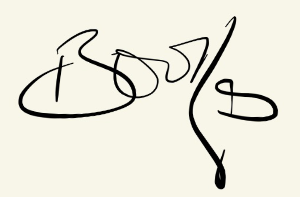

The American spirit of self-reliance goes hand in hand with the mystical tradition of Zen, yet it hasn't found its own bare wire. The best revolution, and the domain of the Zen adept, is an inner one. The Zen Revolution reads like a novel, each compelling chapter revealing another nuance -- the whole gamut, from origin to fiery culmination. Delving into both the spiritual and worldly aspects with equal candor, The Zen Revolution takes on the basic question of existence, perhaps the most important question we face. There's a new adventure in every chapter, leading to an eventual breakthrough--something nearly unheard of in the Zen literature of the West.
After writing The Zen Revolution, the author realized an important theme that had carried through from his childhood: the field of weeds. Originally conceived as a podcast series, twenty-one episodes written at two-week intervals, it’s now available in print.
“I’ve always been attracted to abandoned fields, where the natural forces won against someone’s idea. No more clean lines and monotonous order, instead a swirling chaos of weeds and flowers, so beautifully arranged. A stand of trees, all the intersecting branches moving in the wind, the scattered light — there’s some meaning beyond the simple fact that it exists. It conveys something of its origin, the One.”
“It became alive in me. I first noticed when I had to do the morning bell chant at Musangsa, solo. I’m not a vocalist. I don’t have any natural ability with the voice. I could do it, but not clearly. Out of desperation, I recalled the sunlight through the trees, and I found my voice. It took a few years for me to understand this. My voice became the same as the sunlight through the trees. When I chanted from that place, it conveyed the same information. Then it slowly began to dawn on me that I should live this way.”
SOME OTHER BURNING
Some Other Burning is an unpublished memoir written during a very intensive training period at a Zen monastery in South Korea. In the process of resolving an unrequited love in the mighty forests of the Sorak mountains, the author reveals the threads of consciousness.
ANOTHER END OF THE WORLD
Another End of the World, broadly speaking, explores the evolution from the human to a collective consciousness. The marvelous thing about fiction, we can develop things beyond the limitations of science, beyond anything we can conceive of. The novel was largely influenced by William Gibson's sprawl trilogy and the marvelous new world he introduced. Beyond Gibson's immaculate prose and amazing concepts, he proved that the medium is well suited to illustrate something that has intrigued the author since he was a child: how to penetrate the walls between us. This impossible task, perhaps the most difficult we face and a lifelong pursuit of the author's, here, in Another End of the World, is finally accomplished.
DEVIL STAR
Devil Star is the second book in the trilogy that began with Another End of the World.